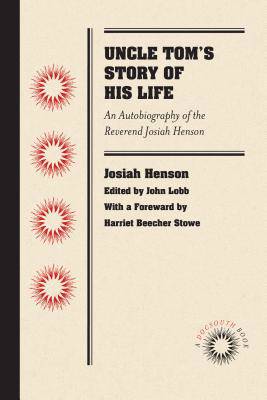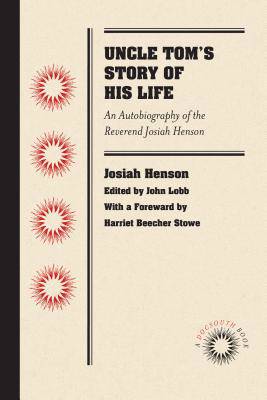
- Retrait gratuit dans votre magasin Club
- 7.000.000 titres dans notre catalogue
- Payer en toute sécurité
- Toujours un magasin près de chez vous
- Retrait gratuit dans votre magasin Club
- 7.000.0000 titres dans notre catalogue
- Payer en toute sécurité
- Toujours un magasin près de chez vous
39,95 €
+ 79 points
Description
This 1876 version of Josiah Henson's autobiography, the first of many editions issued by British editor John Lobb, followed the original 1849 edition and a much-expanded 1858 version. The autobiography traces Henson's life from his birth into slavery in Maryland in 1789; his escape to Canada in 1830; his participation in the founding of the Dawn Settlement for fugitive slaves in Ontario; and his several trips to England to raise funds for the settlement. Henson, who in his later years toured as the model for the Uncle Tom of Harriet Beecher Stowe's novel, describes his meeting with Stowe in 1852 and draws parallels between the histories of other Uncle Tom's Cabin characters and his own acquaintances. While Stowe herself stressed that there was no single model for her title character, she called Henson a "parallel instance" for Uncle Tom in A Key to Uncle Tom's Cabin. Reprinted multiple times in the United States and Britain in the nineteenth century and translated into several other languages, Henson's autobiography continues to reward readers with its descriptions not only of slave life in Maryland and Kentucky, but also of the business and educational ventures of escaped slaves in Ontario.
A DOCSOUTH BOOK. This collaboration between UNC Press and the University of North Carolina at Chapel Hill Library brings classic works from the digital library of Documenting the American South back into print. DocSouth Books uses the latest digital technologies to make these works available in paperback and e-book formats. Each book contains a short summary and is otherwise unaltered from the original publication. DocSouth Books provide affordable and easily accessible editions to a new generation of scholars, students, and general readers.
A DOCSOUTH BOOK. This collaboration between UNC Press and the University of North Carolina at Chapel Hill Library brings classic works from the digital library of Documenting the American South back into print. DocSouth Books uses the latest digital technologies to make these works available in paperback and e-book formats. Each book contains a short summary and is otherwise unaltered from the original publication. DocSouth Books provide affordable and easily accessible editions to a new generation of scholars, students, and general readers.
Spécifications
Parties prenantes
- Auteur(s) :
- Editeur:
Contenu
- Nombre de pages :
- 184
- Langue:
- Anglais
- Collection :
Caractéristiques
- EAN:
- 9780807869611
- Date de parution :
- 01-09-11
- Format:
- Livre broché
- Format numérique:
- Trade paperback (VS)
- Dimensions :
- 150 mm x 226 mm
- Poids :
- 235 g

Les avis
Nous publions uniquement les avis qui respectent les conditions requises. Consultez nos conditions pour les avis.






